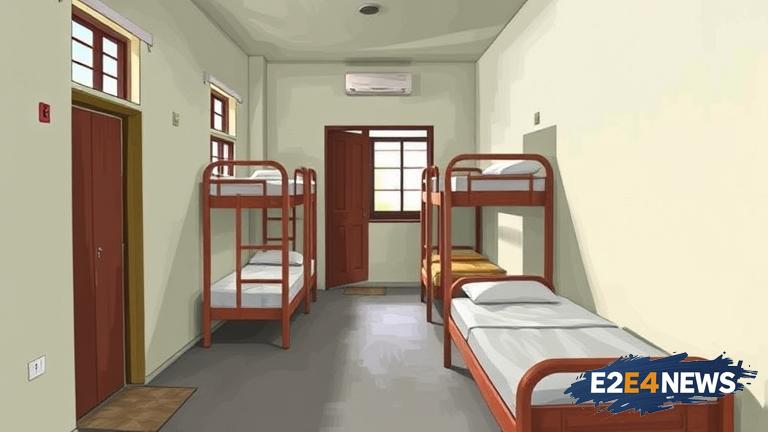The Indian government has initiated various programs to promote education among Scheduled Caste and Scheduled Tribe (SC/ST) students, but the ground reality remains grim. Despite the efforts, many SC/ST residential degree colleges in the country lack basic hostel facilities, leaving students to struggle with their daily needs. The situation is particularly dire in rural areas, where students often have to travel long distances to reach their colleges. The absence of proper hostel facilities forces many students to drop out of college, as they are unable to afford the expenses of living outside the campus. The government has allocated funds for the development of infrastructure in these colleges, but the implementation remains slow. Many colleges lack basic amenities such as clean drinking water, sanitation facilities, and proper lighting. The hostels are often overcrowded, with students having to share small rooms with multiple occupants. The lack of security is another major concern, with many hostels not having proper fencing or security personnel. The students are also forced to contend with poor quality food, which is often unhygienic and insufficient. The colleges are supposed to provide a conducive environment for learning, but the lack of basic facilities hinders the students’ ability to focus on their studies. The situation is not limited to one or two colleges, but is a widespread problem affecting many institutions across the country. The government needs to take urgent action to address this issue, as the lack of basic facilities is a major obstacle to the education and overall development of SC/ST students. The colleges need to be provided with adequate funding and resources to develop their infrastructure and provide basic amenities to the students. The government should also ensure that the funds allocated for the development of these colleges are utilized properly and efficiently. The students and their parents are frustrated with the situation, and are demanding that the government take immediate action to address their concerns. The issue is not just limited to the education sector, but also has a broader social impact. The lack of basic facilities in SC/ST residential degree colleges perpetuates the cycle of poverty and inequality, making it difficult for students from marginalized communities to access quality education. The government needs to take a holistic approach to address this issue, and ensure that the students have access to quality education and basic amenities. The private sector can also play a crucial role in addressing this issue, by partnering with the government to develop infrastructure and provide resources to these colleges. The students are the future of the country, and it is the responsibility of the government and the society to ensure that they have access to quality education and basic amenities. The issue of lack of basic facilities in SC/ST residential degree colleges is a complex one, and requires a multi-faceted approach to address it. The government, the private sector, and the civil society need to work together to ensure that the students have access to quality education and basic amenities. The students are demanding that the government take immediate action to address their concerns, and it is the responsibility of the government to ensure that their demands are met. The issue is not just limited to the state of Karnataka, but is a widespread problem affecting many institutions across the country. The government needs to take urgent action to address this issue, as the lack of basic facilities is a major obstacle to the education and overall development of SC/ST students.
